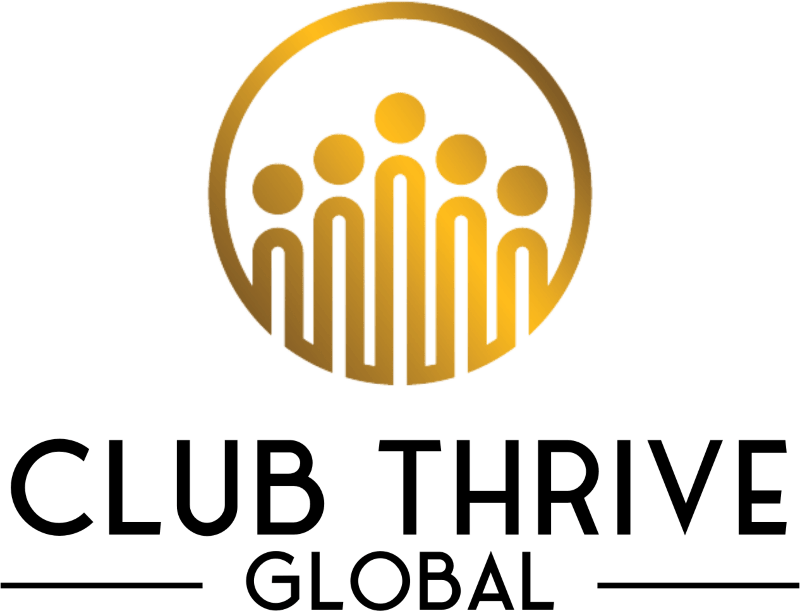Commune
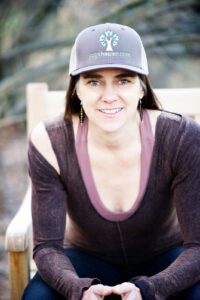
Humans are an ultrasocial species.
— HENRICH & MUTHUKRISHNA: THE ORIGINS AND PSYCHOLOGY OF HUMAN COOPERATION
(2021)
Modern humans identify more with the experience of “I am separate” than “I am connected.” This, too, is a negative stressor leading to degeneration and disease.
Going it alone is a losing strategy.
Lakota holy man Lame Deer explains the habit of commerce combined with true community in this teaching: “When someone was so poor he couldn’t afford a tent, a horse or a blanket, he would receive it all as a gift.” This civil society had the cultural ethos of connectivity.
In 1998, Integral Yoga founder Swami Satchidananda was asked about the difference between illness and wellness. He walked to a blackboard and wrote these two words:
ILLNESS WELLNESS
Then he circled the “I” and the “We.”
Satchidananda was showing that identification with “I, me, my” creates a sense of separation and isolation that cuts you off from everyone, and from your essential nature. Emphatically, he was saying that this is an avoidable illusion, a self-inflicted exile.
A healthy, integrated person is more of a “we” than an “I.”
Near my house in Wyoming, in a lecture titled How our Relationships
Shape Us, UCLA psychiatry professor Dr Dan Siegel explained this concept of integrated identity like this:
For the past 200 million years, those who possessed the precursors to human brains focused on who we are attached to, who we share with. I am connected was the mantra. For the past 50 million years, the emerging modern brain focused on trying to figure out how fit in. We are our relationships was the truth it found. Siegel further explains,
The whole view of a separate self is a toxic lie. It’s a built-in trauma to being a member of this culture. And it is wrong…The mind is both embodied and relational; it’s both within and between.
— DANIEL J. SIEGEL, M.D
Siegel sums it up with: Me plus We (our differentiated identities) equals MWe (our integrated identity). Dr. Gabor Mate, another heavyweight thoughtleader in trauma, works on attachment and individuation, and his research points in a similar direction. Mate points out the need to attach comes first, with individuation coming second:
Thus, the story of maturation is one of paradox: dependence and attachment foster independence and genuine separation.
Attachment is the womb of maturation.
Attachment and individuation—or linked and differentiated—are the two pillars your habits stand on.
Pivot your focus to train the mind away from the belief “I am separate” and toward the belief “I am connected.” The proactive practice of generating your next community is the habit of COMMUNE.
WHO ARE YOU CONNECTED TO?
So, going it alone is a losing strategy. But so is hanging with the wrong crowd.
Yet, there is a core issue.
What if the people you are currently connected to —your core people— are steeped in the accelerated aging habits of inflammation?
Our habits are not our own. Habits are cultural. The habits of those around us become our habits. Have you had any of the following experiences?
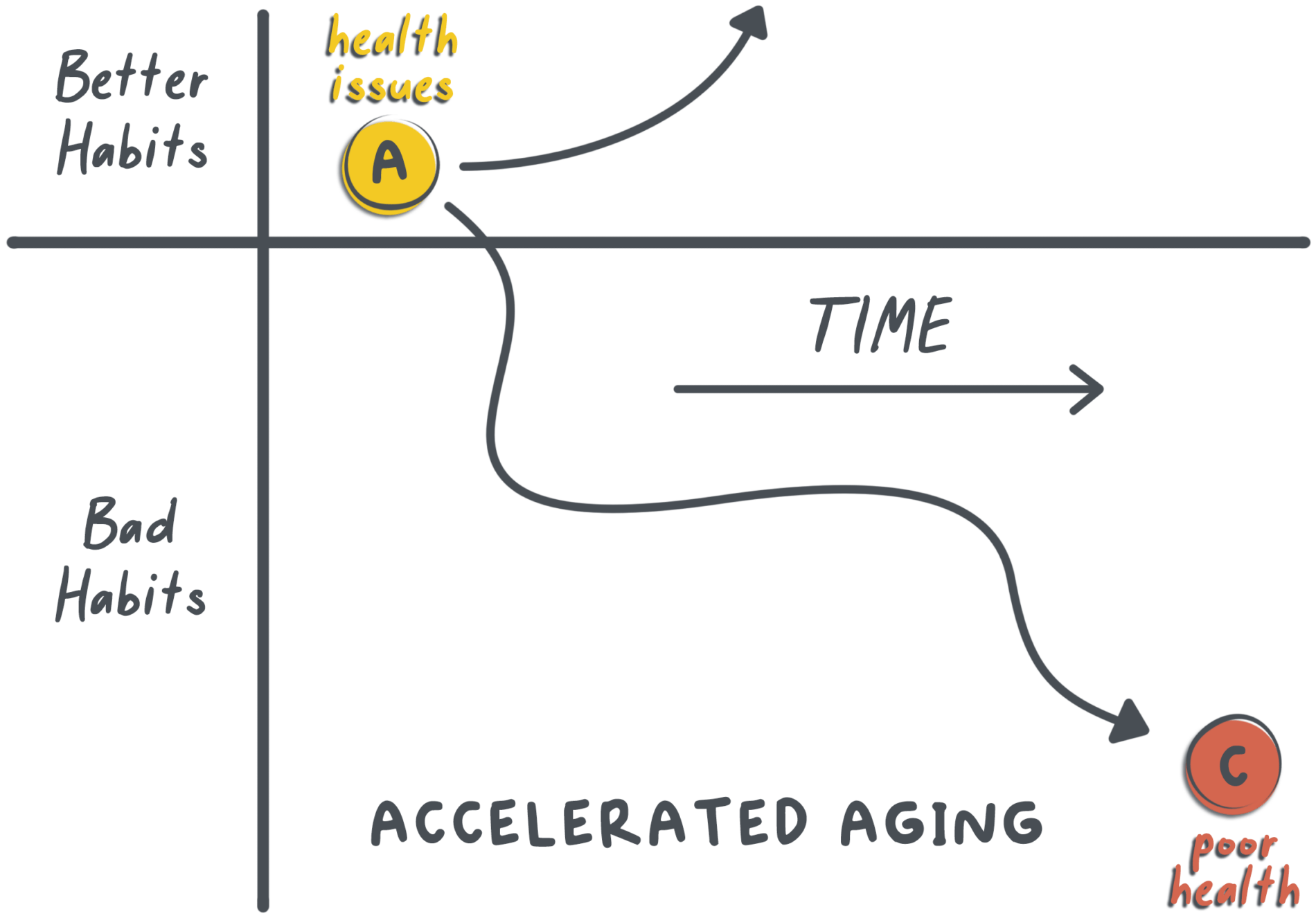
- When you eat with overeaters, you’re likely to overeat.
- When you vacation with people who are active and go to bed early, you return home fit and rested.
- When you hang out with stressed out, sedentary people, you struggle with motivation.
Habits are communal. We share food. Humans share substantially more food than nonhuman primates. Women share more of their microbiome with the family than men. When we share food we share microbiome DNA—the good, the bad, and the ugly. Who we break bread with determines our gut bacteria. Your MICROBIOME is cultural and communal.
CLUB HEAL guides members through a 1-year transformation from health issues to feeling great. Our core strategy for new members is to join our club, where existing members are already progressing with the core circadian habits, and to support the new members to make fast progress in a container which reinforces support for their transformation. We find in about 1 year of time, positive stressor habits, engaged together, move someone from health issues (A) to feeling good (B):
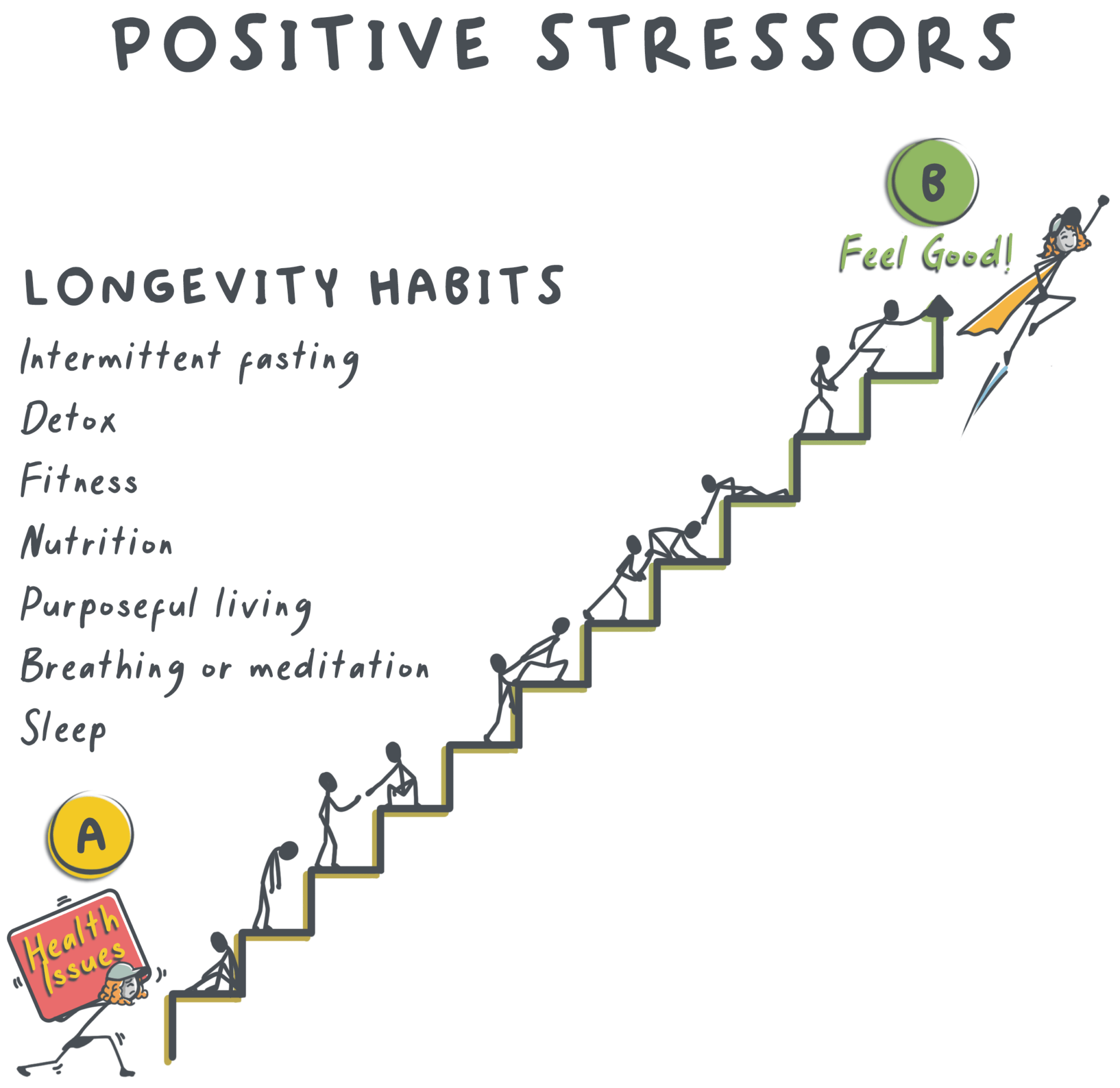
WILDISH
Today, better habits rely on unconventional cultures or groups who have regained their connection to primal knowledge, and rely on wisdom sourced from beyond mainstream culture.
Clarissa Pinkola Estés, in Women Who Run with the Wolves, explains that the creative life is the soul’s food and water. She illuminates how wildness gets extinguished from us as children:
If the child is wildish, she may, unfortunately, be subject to her parents’ attempts at psychic surgery over and over again, for they are trying to remake the child and more so trying to change what her soul requires of her.
— CLARISSA PINKOLA ESTES
Where you have lost your joy, connection, health, vision, and drive, the primal habits return your energy and essence to yourself. You gain creative power over your future.
We FORGIVE. We are humbled knowing we are all learning, albeit sometimes begrudgingly. As the uniquely cultural species, we learn from each other and our human past:
Unlike other animals, we are entirely dependent on learning from other people for our very survival […] a species, we are addicted to culture.
— HENRICH AND MUTHUKRISHNA (2021)
We inherit accumulated wisdom (not the genetic kind) over generations, via culture. We evolve inheriting and enhancing the microcultures we then pass through to our offspring.
What is at stake as we become increasingly isolated and live our lives onscreen? What happens when we lose the habits of circadian rhythm? Of accumulated subtle body wisdom, human enlightenment wisdom? We lose our connection to the culture that nurtured us. That culture itself degrades. Our offspring are born chronic.
When someone wants to shift from negative to positive stressor habits, they will go further and deeper if they can find ways to connect with people who exude the benefits of smarter habits. This can be gradual, or dramatic. Either way, upleveling will mean you uplevel your relationships too. Time with those that were only reinforcing negative stressors usually diminish as anti-inflammatory habits are engaged and your allostatic load is reduced. There is nothing wrong with this, it doesn’t make you a ‘bad friend’ as it happens. All things have their time, and as you become part of a culture that makes you feel great, and share your higher desires into new and existing relationships, things will inevitably change for the better.
PARALLEL CULTURES
The good news is that parallel cultures exist. Parallel cultures have different values and different habits than the dominant culture. Regenerative creative cultures co-exist within the larger degenerative consumer culture.
You can reverse dis-ease faster by connecting to a parallel culture that values the empowered individual and promotes anti-inflammatory habits.
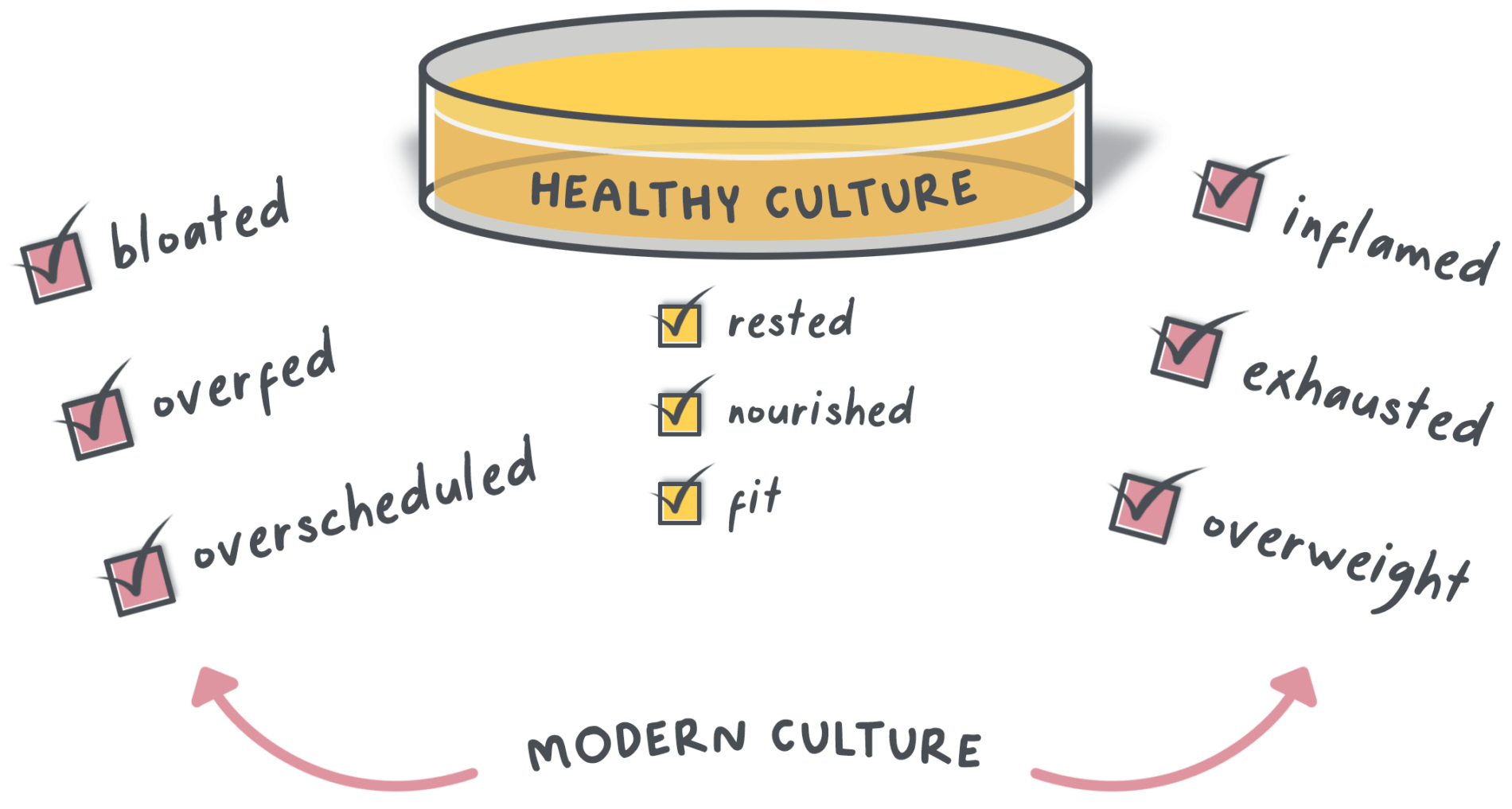
Find people who have stabilized the habits you want, even habits that seem way out of reach for you. Connect with people who have the habits that connect individuals to community, like mindfulness, compassion, and life learning. This is the way to access collaborative intelligence.
I believe cult comes from culture, and you can cultivate anything in a community, you know. So ideally, we’re cultivating something that feels good.
— ALEX EBERT, MUSICIAN
Your habits are contagious, and you generate culture. You might as well cultivate a culture that feels good. Architect how you connect with your people, what you talk about, what you will and won’t do together next, when you fast and feast, how you forgive, focus and orient towards purpose.
Your regenerative habits will become a pull for your core people to reverse the tide of chronic inflammation. Your core people will have access to a healthier person (see WISDOM). This will be apparent at he biological level. Humans smell disease and avoid people based on non-cognitive smell cues.
Feeling good is interdependent and contagious. Your body thriving is your birthright, yet it relies on your caretakers and core people also thriving. You get cultured with habits from your chosen community. Choose your community to thrive.
SHARE
Tetsuro Matsuzawa researched chimpanzees to understand humans better. One big difference he found was sharing – humans’ unique feature is imagination, and that imagination led us to share. Sharing, like hunting or gathering and feasting together, is the result of imagination as much as a practical need; it becomes a sacrament to our connectedness.
Imagine sharing good food with refreshing people. Notice that it’s not hard to imagine. What would you bring to share? By sharing food we share our creative expression. When sharing good food, our microbiome expands and adapts. Notably, living together- or sharing a household – determines the similarity of microbiome species, not genetics.
PEOPLE SET
Indy’s asking me about strategy around her four core interests:
- friends
- sports
- learning
- earning
I suggest that each group is a people set, a unique sphere to design and redesign whenever she wants. She’s choosing her people sets. Each people set has seats to occupy—people with the skills, tools, assets, personality, and networks—for her to grow. Some seats are occupied. Some are empty. Now she knows who to look for and strengthen bonds with.
Commune. Now with more freedom, flexibility, and strategy than ever.

Does this resonate with you?
✔️ You wish you had more time to unplug and realign your life to your next ideal schedule, next purpose, next habits, next reality
✔️ You want powerful, growth-focused relationships
✔️ You’re reconsidering your job, your partnership, your career or your company
✔️ You’re ready to have a strategic approach to making bigger things happen in the world
You want to stretch to become someone you haven’t been before
✔️ You know you need to invest to hang with A players from diverse backgrounds, who are already thriving, and know how to mastermind.
✔️ You want to experience a higher order that comes from next level integrity with your investments, your time, your focus, your habits.
You want to leverage your assets and unique genius to design your future
✔️ You want the skills, tools, and structures to reach goals with the people in your life (partners, teams, family)
You’re a perfect fit for Club Thrive. We’ll be waiting for you. We’re in this together.
Cate Stillman & the Community at ClubThrive.Global
Check out her Self Healer playlists
Share this article:
